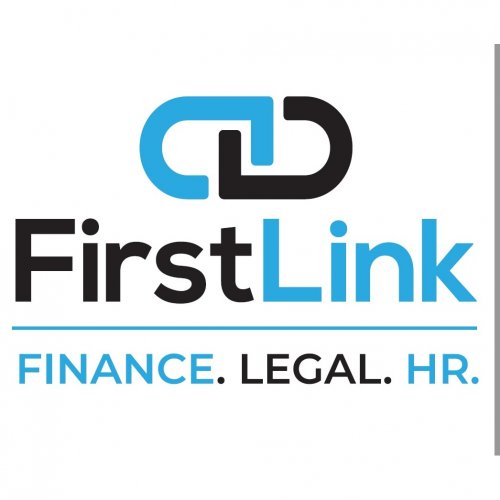Best Bankruptcy & Debt Lawyers in Trinidad and Tobago
Share your needs with us, get contacted by law firms.
Free. Takes 2 min.
Or refine your search by selecting a city:
List of the best lawyers in Trinidad and Tobago
About Bankruptcy & Debt Law in Trinidad and Tobago
Bankruptcy and debt law in Trinidad and Tobago is governed by a set of rules and regulations that provide legal solutions for individuals and businesses unable to meet their financial obligations. The main objective is to offer relief for debtors while ensuring fair treatment for creditors. The Insolvency Act is the primary legislation encompassing the legal processes and procedures for bankruptcy cases in Trinidad and Tobago.
Why You May Need a Lawyer
There are various scenarios where you might require the assistance of a lawyer specializing in bankruptcy and debt-related matters:
- Filing for Bankruptcy: If you are unable to pay your debts, a lawyer can help you understand whether filing for bankruptcy is the best route for your financial situation and guide you through the legal process.
- Debt Negotiation: You may need assistance in negotiating with creditors to restructure your debt or to reach a settlement.
- Creditor Harassment: Legal advice may be necessary if you're facing undue harassment from creditors seeking payment.
- Asset Protection: A lawyer can provide guidance on protecting your assets during insolvency proceedings.
- Understanding Legal Rights: Assistance in understanding your rights and obligations under the local bankruptcy and insolvency laws.
Local Laws Overview
The bankruptcy and debt laws in Trinidad and Tobago are primarily governed under the Insolvency Act, which provides the legal framework for addressing financial distress:
- Insolvency Proceedings: Legal procedures for declaring bankruptcy for individuals and companies.
- Debt Relief Options: Options include liquidation, reorganization or learning about statutory mechanisms to afford relief.
- Trustee Roles: The appointment and duties of licensed insolvency practitioners or trustees overseeing bankruptcy processes.
- Creditor Claims: Guidelines for how creditors can claim outstanding debts during insolvency proceedings.
- Discharge and Annulment: Legal recognition of the conclusion of bankruptcy, releasing the debtor from liability for certain types of debts.
Frequently Asked Questions
What is the difference between bankruptcy and insolvency?
Bankruptcy refers to a legal status declared by a court for individuals who cannot repay their debts, while insolvency is a financial state where one's liabilities exceed assets, applicable to both individuals and companies.
How do I start the bankruptcy process?
The process begins by filing a bankruptcy application with the court, typically advised and facilitated by a legal professional or licensed trustee.
What happens to my assets if I declare bankruptcy?
Your assets might be liquidated to pay off creditors, but certain personal belongings and exemptions may be protected depending on the specifics of your case.
Can I keep my home if I file for bankruptcy?
Keeping your home depends on various factors including the equity in the home and the type of bankruptcy filed. Consultation with a lawyer would provide clarity based on individual circumstances.
Will bankruptcy affect my employment?
While declaring bankruptcy generally does not affect most employment directly, certain positions or jobs that require high financial responsibility might have policies related to bankruptcy.
How long does bankruptcy stay on my record?
This can vary, but in many cases, the bankruptcy information can remain on a public record for several years after the discharge.
Are there alternatives to bankruptcy?
Yes, alternatives include debt settlement, debt management plans, and debt restructuring, which may involve negotiation with creditors.
Can all types of debt be discharged in bankruptcy?
Not all debts can be discharged, including certain taxes, student loans, and child support obligations, among others.
What is a Licensed Insolvency Trustee (LIT)?
A Licensed Insolvency Trustee is a qualified professional authorized to administer insolvency proceedings including bankruptcy, guiding debtors and overseeing the process.
Is there a difference between corporate and personal bankruptcy?
Yes, corporate bankruptcy pertains to businesses unable to pay their debts, while personal bankruptcy involves individuals. The processes and implications differ significantly.
Additional Resources
Here are some resources and organizations that could be helpful:
- Insolvency and Bankruptcy Regulator: Oversee local applications and compliance with the Insolvency Act.
- The Bankruptcy and Insolvency Office: Manages bankruptcy applications and processes.
- The Law Association of Trinidad and Tobago: Offers directories for finding qualified insolvency and bankruptcy lawyers.
- Financial Literacy Week Resources: Government initiatives often offer free resources on managing personal finances.
Next Steps
If you need legal assistance in the area of bankruptcy and debt, consider the following steps:
- Consult a Lawyer: Seek a legal professional specialized in bankruptcy and debt law in Trinidad and Tobago for personalized advice.
- Gather Documentation: Organize your financial documents, including income, assets, liabilities, and any relevant correspondence with creditors.
- Understand Your Options: Educate yourself on possible courses of action, such as debt restructuring or bankruptcy filing, before making a decision.
- Engage a Licensed Insolvency Trustee: If you opt to file for bankruptcy, work with a licensed trustee who can help manage the legalities and procedural requirements.
Lawzana helps you find the best lawyers and law firms in Trinidad and Tobago through a curated and pre-screened list of qualified legal professionals. Our platform offers rankings and detailed profiles of attorneys and law firms, allowing you to compare based on practice areas, including Bankruptcy & Debt, experience, and client feedback.
Each profile includes a description of the firm's areas of practice, client reviews, team members and partners, year of establishment, spoken languages, office locations, contact information, social media presence, and any published articles or resources. Most firms on our platform speak English and are experienced in both local and international legal matters.
Get a quote from top-rated law firms in Trinidad and Tobago — quickly, securely, and without unnecessary hassle.
Disclaimer:
The information provided on this page is for general informational purposes only and does not constitute legal advice. While we strive to ensure the accuracy and relevance of the content, legal information may change over time, and interpretations of the law can vary. You should always consult with a qualified legal professional for advice specific to your situation.
We disclaim all liability for actions taken or not taken based on the content of this page. If you believe any information is incorrect or outdated, please contact us, and we will review and update it where appropriate.
Browse bankruptcy & debt law firms by service in Trinidad and Tobago
Trinidad and Tobago Attorneys in related practice areas.
Browse bankruptcy & debt law firms by city in Trinidad and Tobago
Refine your search by selecting a city.










